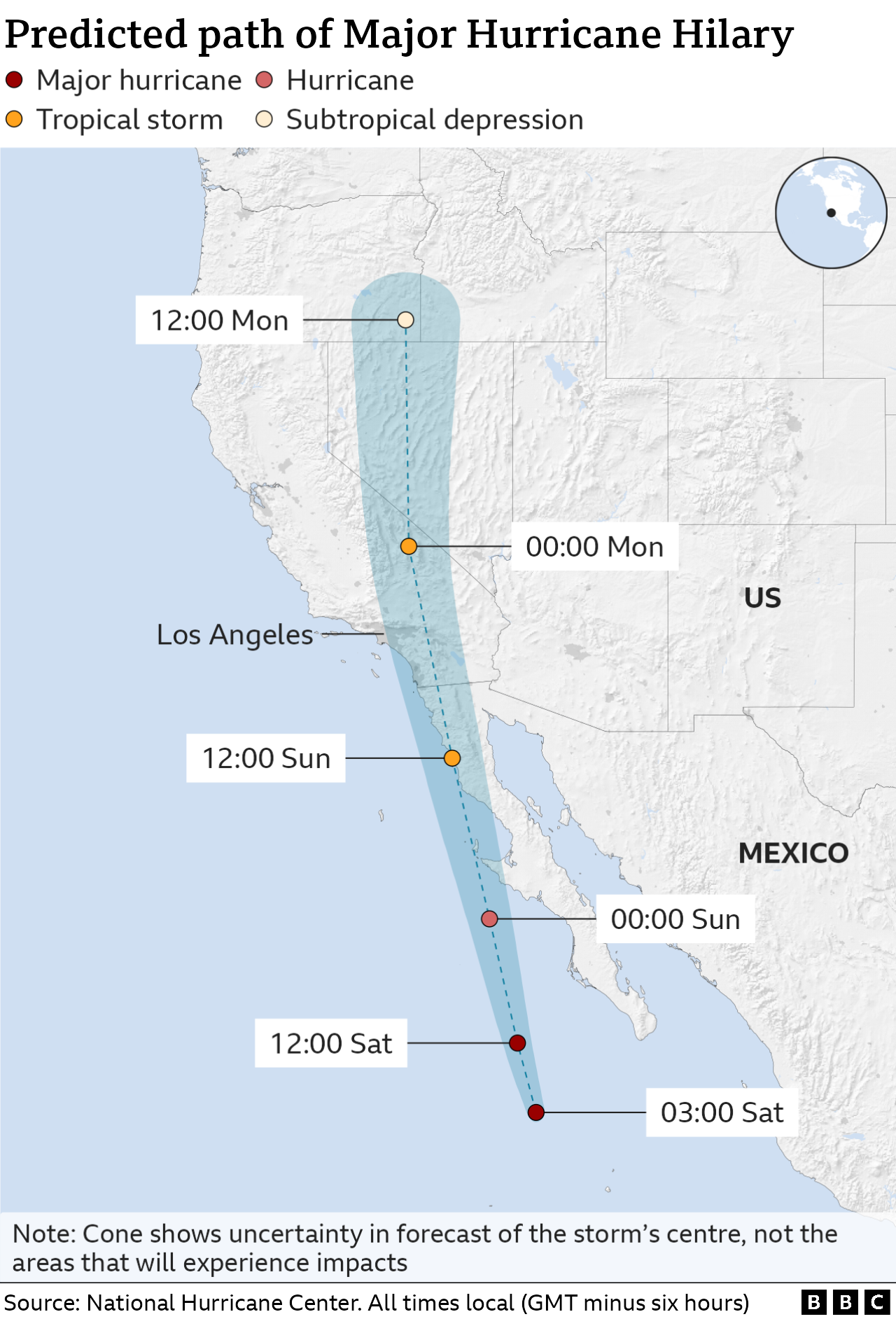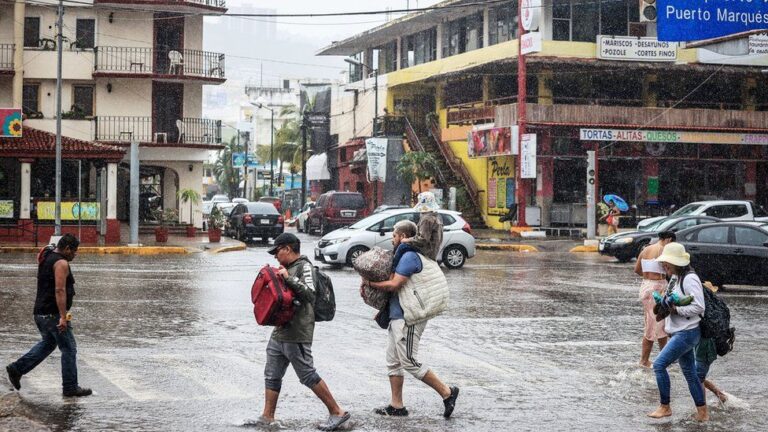A hurricane packing 130mph (215km/h) winds is churning towards Mexico and the south-western US.
The Category 4 storm, named Hilary, is predicted to first make landfall in Baja California, a Mexican state, on Saturday.
Forecasters say it will then lose speed and become a tropical storm, moving towards southern California, where flash flood warnings are in place.
It would be the first tropical storm to hit California in more than 80 years.
The Federal Emergency Management Agency (Fema) has “pre-positioned personnel and supplies in the region, and they’re ready to respond as needed,” President Joe Biden said Friday.
“I urge everyone in the path of the storm to take precautions and listen to the guidance from state and local officials.”
In San Diego, the NWS has issued a warning for the “high potential” of flash flooding.
Nearly 26 million people in the south-western US were under flood watch.
As of Friday night, the hurricane had lost a little steam and was roughly 285 miles south-west of Mexico’s southern edge.

Parts of Mexico are under a tropical storm watch, and its government has placed 18,000 soldiers on standby to assist in rescue and relief efforts.
Hilary is expected to weaken to a tropical storm by late Sunday before it reaches southern California, the NWS said.
As the storm bears down, Major League Baseball has rescheduled three games in southern California, while SpaceX delayed the launch of a rocket from its base on the central California coast until at least Monday.
The National Park Service also closed Joshua Tree National Park and Mojave National Preserve, both in California, to prevent visitors from being stranded in the event of flooding.
Local officials in cities across the region, including in Arizona, are offering sandbags to residents seeking to safeguard their properties against potential floodwaters.
Hurricanes and tropical storms are somewhat common in Mexico.
But it is “exceedingly rare” for a tropical storm to come off the ocean and make landfall in California, Stefanie Sullivan, a forecaster with the National Weather Service in San Diego, told the New York Times.
Experts say the severe and abnormal weather events plaguing the US – and several areas across the globe – are being influenced by human-caused climate change.
In the wake of the hottest month on record, July 2023, according to Nasa, the deadliest wildfire in modern US history spread across Hawaii on 8 August, killing at least 111 people.
The damage was escalated by hurricane winds passing through the area.
BBC



























